Heard the term ‘holistic skincare’ and immediately thought it meant everything needs to be organic, natural and overpriced? Well, that’s not actually what it means. Taking a holistic approach to skin means we look at you at a whole person, rather than the skin issue in isolation.
Holistic skincare is about understanding that your skin isn’t just randomly breaking out; it’s usually a reflection of something deeper. Things like hormones, gut health, stress, lifestyle choices, and even emotional well-being can all play a role. So instead of just treating the symptom (the breakout), a holistic approach digs deeper to figure out why it’s happening in the first place, and works at the issue from multiple areas.
Can a Holistic Approach Help Acne?
If you’re reading this, I’m guessing you’ve tried a skincare product, a supplement, or even medication that promised miracles, only to be left disappointed when your skin didn’t magically transform. That’s because real, long-term skin health isn’t about one magic fix. It’s about understanding what’s happening inside your body and addressing it from all angles.
If we only focus on treating the surface issue, like breakouts or blackheads, without looking at the root cause, we’re basically slapping a band-aid on the problem. Holistic skincare takes everything into account to bring your body back into balance.
And no, that doesn’t mean you need to throw out your skincare and start rubbing coconut oil on your face and manifesting clear skin (unless that’s your vibe, but I wouldn’t recommend it). It just means acknowledging that your skin is influenced by more than just what you put on it.
What Does a Holistic Approach to Skin Look Like?
The beauty of a holistic approach? You’ve got options. If you’ve ever felt like nothing works for your skin, this is where combining different methods and digger deeper into your overall health might be the missing piece. Here’s how it all comes together:
1. Medications & Skincare
Holistic doesn’t mean anti-medicine. Sometimes, prescription creams, antibiotics, or even Roaccutane are necessary. But the key is integrating these with other therapies instead of relying on them alone. Pairing medication with good nutrition, lifestyle changes, and stress management can help your skin heal more effectively and sustainably. Plus, if you’re on medication, supporting your body properly might help reduce side effects and lower the chance of your skin issues coming back.
2. Facials & Professional Treatments
Never underestimate the power of the right skincare routine! Many people either go all-in with harsh treatments or switch to completely natural products, thinking it’ll fix everything. But even ‘natural’ or ‘organic’ products can cause problems with your skin barrier.
If your skin barrier is damaged from overuse of topical products, no amount of clean eating will clear your skin. Facials and advanced skin treatments can really help speed up the process. And, if you struggle with acne scarring, or pigmentation, specific treatments are really what help the skin heal. I’m talking about microneedling, LED light therapy and more. But don’t just think it’s all about the treatments, your daily skincare routine is what really makes the difference.
One facial a month isn’t going to outdo what you put on your skin every single day, so if you’re going to prioritise something, prioritise your homecare routine.
3. Nutrition & Gut Health
Nutrition is such a big topic when it comes to skin health, and it’s finally getting the recognition it deserves. But with the hype comes a load of misinformation. Here’s nutrition for skin, simplified!
Your skin needs vitamins, minerals, protein and fats to function properly, and we get these things from food! As well, the gut and skin are so deeply connected, and imbalances in your gut can show up as breakouts and slow healing.
You want to make sure you’ve got the nutrition foundations in place. And by that I mean your diet includes:
- Healthy fats from avocados, extra virgin olive oil, nuts, seeds and fish
- Fibre from fruits, vegetables, whole grains, legumes
- Protein from meats, fish, eggs, dairy, legumes
- Antioxidants from colourful vegetables
- Hydrating your body
If you’ve got these covered and still aren’t seeing results, that’s when it’s time to dig deeper. Like checking in with your gut health, hormones, or ruling out nutrient deficiencies. Because sometimes, if you’ve got some real imbalances (like a nutrient deficiency or an overgrowth of bacteria), food alone isn’t enough to correct it.
4. Acupuncture & Herbal Medicine
Traditional Chinese Medicine (TCM) has long viewed skin conditions as a reflection of internal imbalances. Acupuncture may help regulate hormones, reduce inflammation, and promote better circulation, all of which support skin health. Herbal medicine, when used correctly, can be really great for multiple areas of health, but I’ve had first-hand experiencee with both of these practices to help my PCOS symptoms.
5. Exercise & Movement
Regular movement supports circulation, reduces stress, and helps balance hormones, all of which can lead to healthier skin. All exercise is beneficial (don’t let anyone tell you otherwise!) whether it’s yoga, weight training, running, or dancing around your living room, movement is a crucial part of holistic skin health.
6. Managing Stress & Emotional Well-Being
I’m sure you’ve noticed how your skin flares up when you’re stressed. That’s because stress triggers inflammation, weakens the skin barrier, and can even disrupt hormones. Managing stress through meditation, therapy, journaling, or even just taking time for yourself can have a profound impact on your skin.
CBT (Cognitive Behavioural Therapy) and mindfulness practices can also be powerful tools for reframing negative thought patterns, which in turn can reduce stress-related skin flare-ups. If you’ve ever fallen into the cycle of stressing about your skin, which then makes it worse, which then causes more stress, CBT or working with a mindset expert can help break that loop.
You Don’t Have to Do Everything at Once
I know, this probably sounds like a lot. And it might seem expensive. But the good news is you don’t have to do it all overnight.
The best thing about a holistic approach is that it’s flexible. You can start small, maybe with some tweaks to your diet. Then you could try adjusting your skincare or finding ways to manage stress. I’ve been on my own skin health journey for years and I made these changes little by little. Find what works for you, at your own pace. I can tell you that combining a few of these practices over the years has really help to correct all the pieces to my health puzzle, and help me keep my skin healthy and balanced.
What You Should Know About Holistic Skincare
A holistic approach isn’t a quick fix, but trust me, it’s worth it in the long run.
When you stop hyperfocusing or obsessing over your skin and focus on supporting your whole body, everything starts improving. Your mood, your energy, your digestion, your periods and your skin.
If you’ve tried something for six months with zero improvement, then it might be time to switch things up. But overall, the longer you stick to these healthy habits (and make sure they’re the right habits for you), the better things get over time.
Now, I’m not saying it’s all smooth sailing once you start your holistic skin journey. There will be so many ups and downs along the way, and sometimes it will feel like it’s getting so much worse, before it finally starts to get better. That’s all part of the journey; healing is never linear.
But when your body is in a healthier place, you bounce back faster. A breakout heals in days, instead of lingering for weeks and weeks. You feel more confident in yourself and your ability to heal.
Need some help with your holistic approach to skincare?
Your skin is a reflection of your overall well-being, not just what you put on it. And a holistic approach means considering everything from nutrition and gut health to stress levels and lifestyle habits. It’s about supporting your skin from the inside out while still making use of the incredible advancements in skincare and medicine.
So, the next time you’re dealing with a skin concern, take a step back and ask yourself: What else could be playing a role? And trust me, your skin (and your entire well-being) will thank you for it. If you need some help with the nutrition side of things, you know where I am. Just drop me a message and we can get started.





0 Comments